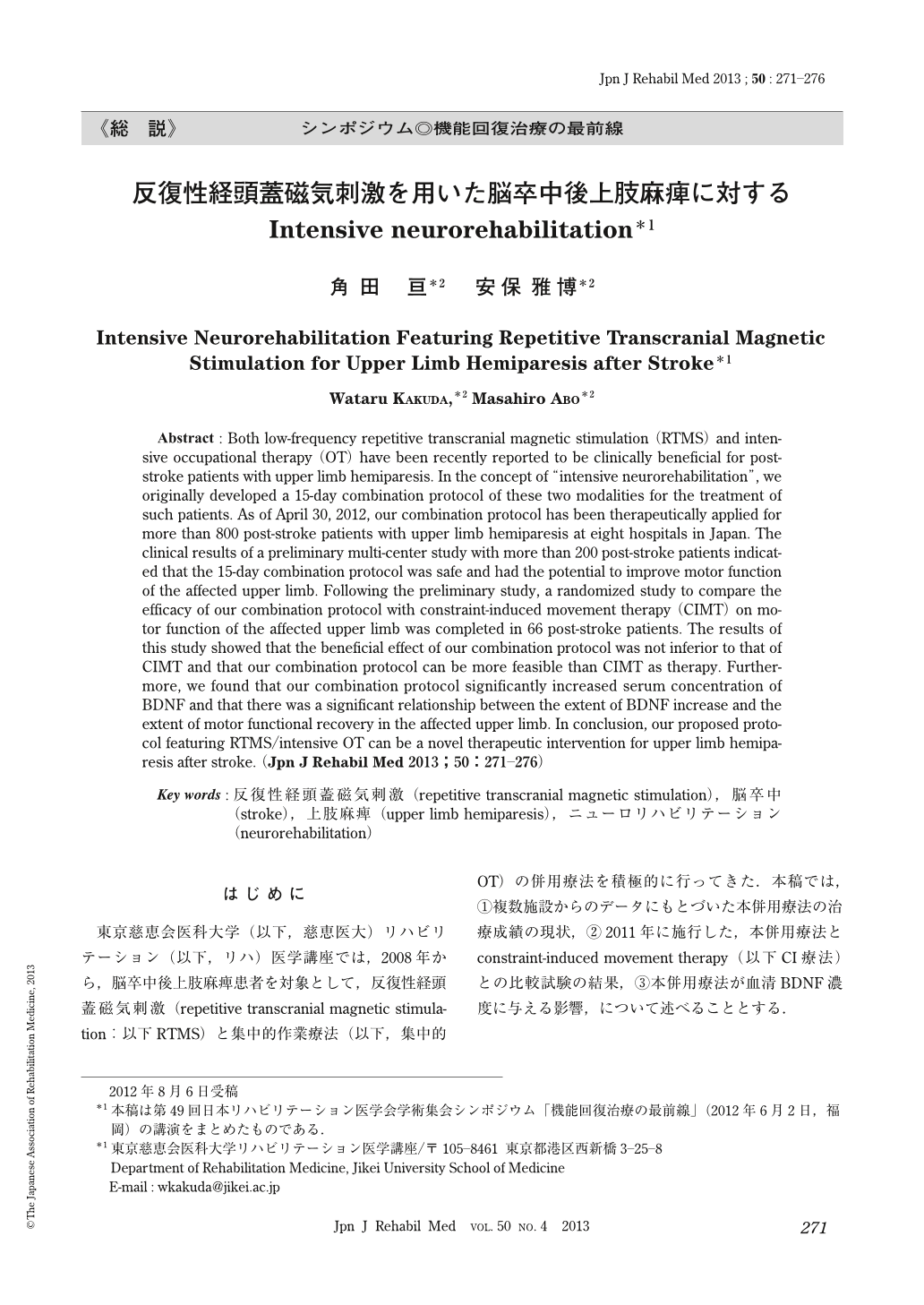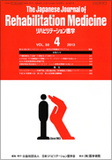Japanese
English
- 販売していません
- Abstract 文献概要
- 1ページ目 Look Inside
- 参考文献 Reference
はじめに
東京慈恵会医科大学(以下,慈恵医大)リハビリテーション(以下,リハ)医学講座では,2008年から,脳卒中後上肢麻痺患者を対象として,反復性経頭蓋磁気刺激(repetitive transcranial magnetic stimulation:以下RTMS)と集中的作業療法(以下,集中的OT)の併用療法を積極的に行ってきた.本稿では,①複数施設からのデータにもとづいた本併用療法の治療成績の現状,②2011年に施行した,本併用療法とconstraint-induced movement therapy(以下CI療法)との比較試験の結果,③本併用療法が血清BDNF濃度に与える影響,について述べることとする.
Abstract : Both low-frequency repetitive transcranial magnetic stimulation (RTMS) and intensive occupational therapy (OT) have been recently reported to be clinically beneficial for post-stroke patients with upper limb hemiparesis. In the concept of “intensive neurorehabilitation”, we originally developed a 15-day combination protocol of these two modalities for the treatment of such patients. As of April 30, 2012, our combination protocol has been therapeutically applied for more than 800 post-stroke patients with upper limb hemiparesis at eight hospitals in Japan. The clinical results of a preliminary multi-center study with more than 200 post-stroke patients indicated that the 15-day combination protocol was safe and had the potential to improve motor function of the affected upper limb. Following the preliminary study, a randomized study to compare the efficacy of our combination protocol with constraint-induced movement therapy (CIMT) on motor function of the affected upper limb was completed in 66 post-stroke patients. The results of this study showed that the beneficial effect of our combination protocol was not inferior to that of CIMT and that our combination protocol can be more feasible than CIMT as therapy. Furthermore, we found that our combination protocol significantly increased serum concentration of BDNF and that there was a significant relationship between the extent of BDNF increase and the extent of motor functional recovery in the affected upper limb. In conclusion, our proposed protocol featuring RTMS/intensive OT can be a novel therapeutic intervention for upper limb hemiparesis after stroke.

Copyright © 2013, The Japanese Association of Rehabilitation Medicine. All rights reserved.


